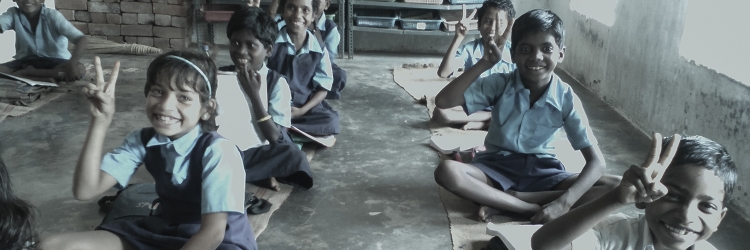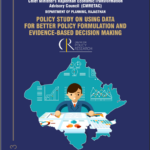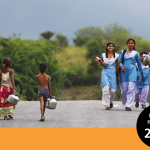
Teachers’ thoughts on teaching-learning
5 September 2017
Over the past decade, our team at the Accountability Initiative has collectively interviewed several hundreds of teachers across states in India to understand their concerns, work environment and role perception. And year after year we have noted remarkably similar thought patterns emerge. On the occasion of Teacher’s Day, we connected with four senior teachers from four states for a free-wheeling discussion on similar topics, and once again, the outcome was the same. In this blog I discuss two of the dominant narratives which occupy the average government school teacher’s mind.
Teaching continues to be viewed as a “noble vocation”, “a social service.” Teachers recognise and fully understand the importance of their role in shaping the future of the nation. Additionally, there is an increasing recognition of the importance of tailoring teaching methods to suit students’ learning levels. The image of the teacher as one who facilitates learning rather than one who purely transmits knowledge to students, is also slowly entering their imagination.
“A teacher’s role is to provide quality education to students which is in sync with their learning levels.”
“A teacher’s role is to teach according to the learning level of the students in a way that they (primary students in particular) understand concepts. It is also the teacher’s responsibility to identify and resolve issues that students may be facing in schools.”
“Teacher’s main roles are to provide education to students and create a healthy environment in schools wherein students are able to freely express themselves.”
This is encouraging. It indicates that the efforts being put in by the Central and state governments, and NGOs to create a paradigm shift in the way education is viewed have left an impression on government school teachers.
When asked about the big, positive changes they see around them in schools in the last decade, teachers are quick to point out that government schools provide services like mid-day meals which is a big draw for students coming from very humble backgrounds; and schools are generally better resourced now than ever before. When we ask about the negative changes in the last decade, the responses we hear almost certainly include the following – theintroduction of the No Detention Policy and the policy to ban corporal punishment are steps taken in the wrong direction.
Interestingly, when we ask teachers about the factors which affect teachers while teaching, and the factors which act as hindrances in the learning process, the list of reasons almost always includes the No Detention Policy and the ban on corporal punishment. A senior teacher sums up this reasoning:
“Earlier students feared us and took their lessons seriously. A few threats went a long way in making sure students remained focused on their studies. With the No Detention Policy and the move to end corporal punishment, students, and in some cases, teachers, have started taking studies lightly. They know there will not be any consequences if students score low marks since students are passed to the next standard regardless of what they actually know. Students in turn have become rowdy and don’t respect their teachers. They in fact threaten teachers because they (students) know they (teachers) cannot touch them.”
The intertwining of these two factors have created a twisted narrative which is deeply ingrained in many teachers’ minds.
Perhaps we are witnessing a system in transition. A paradigm shift is perhaps truly underway which is why we are seeing this paradox – on the one hand there is an increasing recognition of the need to change the way teaching-learning is viewed i.e. one where teaching is child-centric which means teaching is tailored to meet students’ learning needs and the teacher mainly acts as the facilitator. Yet there is a fervent desire to hold on to traditional methods of imparting education because they appear to work.
Change is hard. Even though there are normative shifts in the way policies around teaching-learning practices are being drafted and executed, implementers at the last and most important mile of implementation – the school – are taking much longer to catch up. This only tells us that the need to train teachers on innovative teaching methods, providing feedback and support post training sessions to clear up concerns and issues, is critical now more than ever.
With inputs from Senior PAISA Associates Swapna Ramtake, Vinod Verma and PAISA Associates Tajuddin Khan, Uday Shankar.
Have something to add? Leave a comment below.





